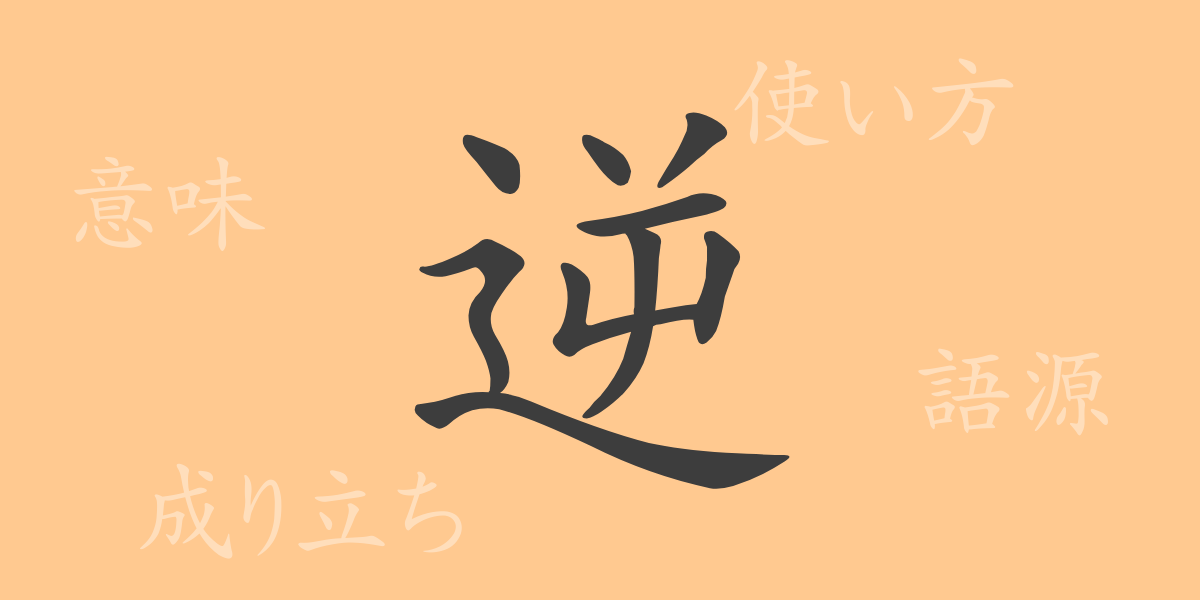The beauty of the Japanese language lies in its complexity. The meaning embedded in a single character often requires deep understanding rather than immediate intuition. This time, we spotlight the common-use kanji “逆” (gyaku), exploring its origins and contemporary usage. In this article, we will uncover the rich expressiveness of “逆” (gyaku) and its role in Japanese culture.
Origin of 逆 (語源)
The kanji “逆” (gyaku) originated in ancient China. Tracing its roots, it derived from a pictograph representing a foot turned in the opposite direction. This symbolized a movement contrary to the normal direction, forming the character “逆” (gyaku). Over time, its shape evolved, undergoing numerous changes to become the “逆” (gyaku) we recognize today.
Meaning and Usage of 逆 (gyaku)
The kanji “逆” (gyaku) refers to opposition, reversal, or rebellion, indicating a state or order contrary to the norm. It is used not only to denote physical direction but also in a metaphorical sense. For example, it can be used when arguing a point, as in “逆に考えると…” (gyaku ni kangaeru to…, thinking conversely…).
Reading, Stroke Count, and Radical of 逆 (gyaku)
The kanji “逆” (gyaku) has multiple readings in Japanese, applied according to context.
- Reading: The on-yomi (Chinese reading) is “ギャク” (gyaku); the kun-yomi (Japanese readings) are “さか” (saka), “さか.らう” (saka.ra.u), “さか.さ” (saka.sa), and “さか.しま” (saka.shima).
- Stroke count: 9 strokes in total.
- Radical: The radical is 辵 (しんにょう, shinnyou), which signifies movement or walking.
Idioms, Proverbs, and Expressions Using 逆 (gyaku)
There are many idioms, proverbs, and expressions that include the kanji “逆” (gyaku), each carrying unique meanings and nuances. For instance:
- 逆境 (ぎゃっきょう, gyakkyou): Adverse circumstances or a difficult situation.
- 逆転 (ぎゃくてん, gyakuten): A complete reversal from a disadvantageous to an advantageous position.
- 逆上する (ぎゃくじょうする, gyakujou suru): To lose one’s cool or become enraged.
- 逆効果 (ぎゃくこうか, gyakukouka): A counterproductive result, opposite to the intended outcome.
Summary on 逆 (gyaku)
The kanji “逆” (gyaku) adds depth to the Japanese language with its rich meanings and diverse uses. From everyday conversations to literary works and business settings, “逆” (gyaku) is used in various contexts, enhancing our understanding of Japanese culture. We hope this article helps you appreciate the history and significance embedded in the single character “逆” (gyaku).

























